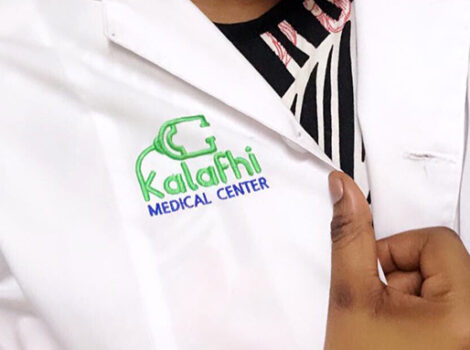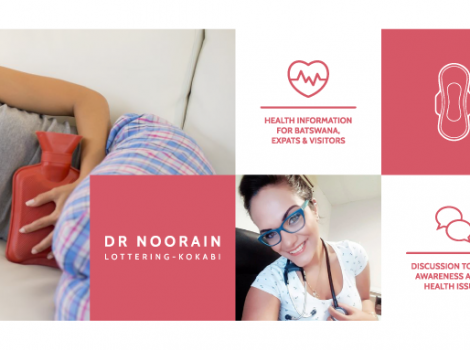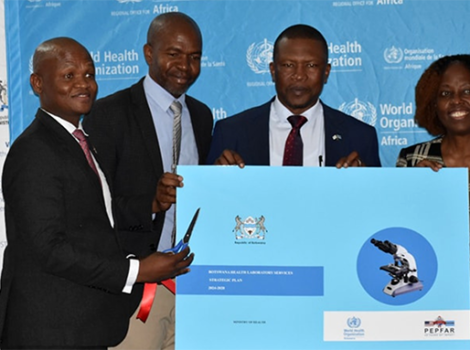
22 September, 2023
When the lab of the Botswana Harvard AIDS Institute Partnership produced the first genetic sequence of the Omicron variant of the coronavirus in fall 2021, the world took notice. More recognition came last month when the lab was named a WHO Collaborating Centre.
The last week of August was a big deal for the Botswana Harvard AIDS Institute Partnership (BHP) in Gaborone.
In the span of a few days, BHP—a research and training centre with over 300 affiliated scientists, students, and staff members—was involved in hosting a series of high-level visitors and events that highlighted its increasing recognition as a key player in the global health arena.
On August 28, Tedros Ghebreyesus, director-general of the World Health Organization (WHO), visited to announce that the partnership’s lab—the Botswana Harvard HIV Reference Laboratory—was being named a WHO Collaborating Centre of Excellence for HIV drug resistance testing. Also on hand was Botswana President Mokgweetsi Eric Keabetswe Masisi.
On August 30, Jean Kaseya, director general of the Africa CDC, visited BHP to donate a top-of-the-line sequencing machine. President Masisi showed up for that event too.
Also on August 30, the U.S. Ambassador to Botswana, Howard Van Vranken, paid a visit to learn more about BHP’s work, including its slate of research funded by the U.S. National Institutes of Health.
Begun in 1996 as a collaboration between Botswana’s Ministry of Health and Wellness and Harvard T.H. Chan School of Public Health, BHP is now an independent institution focused on high-quality health research, training, and practical interventions to address the HIV/AIDS epidemic and other major health challenges in Botswana and the region.
BHP’s lab made headlines in the fall of 2021 when its director, Sikhulile Moyo, helped identify the highly contagious Omicron variant of the coronavirus. The variant went on to cause a huge spike in COVID-19 cases around the world during the winter of 2021-22. And Moyo went on to receive a number of accolades for his work, including being named one of TIME magazine’s 100 most influential people in the world for 2022.
Cutting-edge work
Moyo, who is also a research associate in Harvard Chan School’s Department of Immunology and Infectious Diseases, said beyond HIV and COVID, BHP is well-positioned to help identify and characterise a wide range of infectious diseases including tuberculosis, viral hepatitis, dengue, chikungunya, and yellow fever, and to contribute in fighting other diseases such as cancer.
“The lab started with a focus on HIV, but our mandates have evolved,” he said. “We are now at the cutting edge in terms of other infectious diseases and other public health issues of concern.
We’ve pivoted especially in the area of pathogen genomics, and this work—including our sequencing of the Omicron variant—showed the world that it is possible to have significant findings and impact from Africa.”
Moyo is cheered by the increasing recognition and support from respected organisations like the WHO and the Africa CDC because it underscores the important role that BHP can play in Botswana and beyond.
BHP and Botswana have “caught the attention of one of the biggest organisations in the world,” he noted, referring to the WHO.
“It’s a vote of confidence from them that they can partner with us to drive an agenda at a high level. They’re acknowledging that we are positioned a centre of knowledge, of mentorship, and of generating data that impacts global health.”
As for the donation of the sequencing machine from the Africa CDC—an Illumina NexGen2000—it’s “a very big deal,” Moyo said. In order to conduct genomic sequencing of large numbers of biological samples, BHP has at times had to collaborate with sequencing centres outside Botswana.
“But now we can generate high-quality sequencing within our own lab,” Moyo said. It will enable the BHP lab not only to discover and characterise pathogens—information that is crucial for diagnostics and vaccine design—but also to precisely identify cancers, which can lead to more tailored treatments.
“By having the Illumina—the most advanced technology available for cutting-edge sequencing work—it will help us attract trainees who want to do this work and will help keep us at the forefront of pathogen genomics,” noted Roger Shapiro, professor of immunology and infectious diseases at Harvard Chan School and a BHP principal investigator.
“It is a huge step forward toward our goal of modernising BHP’s laboratory.”
Having two visits from Botswana’s president in one week was also deeply heartening, Moyo noted. At the ribbon-cutting ceremony for the new sequencer, Masisi said,
“This particular facility thrives on excellence, and excellence begets gifts like this. I can bet you that in not so long a time they will come up with something ingenious and groundbreaking.”
‘Now we have to fly’
The increasing recognition of BHP’s work has been inspirational for the team, Moyo said.
“We’ve always wanted to grow, and this was a pivotal moment for us,” he said. “If we were walking, now we have to fly. We can now be a bit more agile, and ask more questions.
We are not naïve that we can answer all the questions in the world, but let’s do the best work we can do while collaborating with others in the field.”
BHP’s raised profile has also changed things for Moyo personally.
“My family used to think that I needed to change my lifestyle, that I was spending too much time in the lab,” he said.
“Now they look at my work in a different way. Now they ask me, ‘How can we help you do your work better?’”



